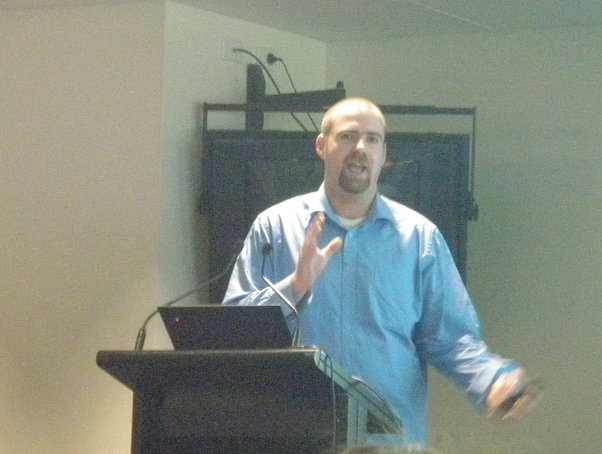I hope you find my writing and business tips and observations useful. My business and blog are dedicated to helping businesses communicate clearly and reach their potential.
Read, subscribe to my newsletter, enjoy!Tash
Avoiding fluff keeps the message clear
Whatever message you are trying to convey, the clearer you can make it the easier it will be to understand and remember.
Generally, a shorter, simpler sentence will explain a message better than a long, complex sentence. Or paragraph.
Giving unnecessary options
I recently came across this sentence on a website form: ‘credit card details only needed if posting this form’.
It seems simple enough – we don’t need your credit card details if you send us the form electronically or by courier pigeon. So if you’re not posting the form, save yourself the trouble of filling in half our form is the subtext.
One slight problem though – there was absolutely no way to submit their form except by posting it. The form was just a pdf to print off – there was no online submission nor was there an email address or fax number to be seen on the site.
So what they’re really saying is ‘fill in the credit card details’.
Check if it is needed
I think it’s pretty simple – if the information is meaningless (like credit card details for unavailable options) or useless, delete it.
Sometimes it’s a matter of reading through your words point by point and testing them out.
Sometimes it works better to list what is necessary then go to the text and assess everything not on the list – it may add value so you keep it but otherwise, delete it.
This is just as important when you change something as when you first write it.
In our example above, they may have had email details on the site but removed it to reduce spam and forgot to update the form reference.
When’s the last time you filled in a form on your site or followed your sales process to check it all makes sense and works? Did you read every word to be sure nothing pointless is in there?
being vague builds anticipation – or annoyance?
I’ve travelled on some trains lately which is not something I do very often these days (working from home doesn’t require a lot of train trips!) and read some messages about the new ticketing system.
Now, I called it a new system because it is replacing our old system but it has been in use since the end of 2009! Basically, the myki card is an electronic contact system for public transport throughout Victoria instead of our old metcard system.
Myki has been phased in and many people were still using the metcards earlier this year.
Notices in trains
At each end of train carriage in Melbourne, a ticker system gives messages such as the name of stations as the train approaches.
Recently, that is in October and November 2012, I’ve seen the following message:
myki is replacing metcard in 2012
What do you think of this message?
Build anticipation
Sometimes, not giving the full story is a great way to keep people interested and motivate them to find out more.
Like at the end of season a TV show will have Mary heading into danger while John is arrested on his way to rescue her. If you care about John and Mary, you are drawn to see the next season.
So being vague can have advantages.
I’m not so sure that a vague ‘2012’ is good enough for something like ending a ticket system. Especially as I remember 1 July being advertised as the date metcards stopped…
Commitment or safety?
If I tell you that the blog posts you asked me to write will be ready at 1pm on Monday, you have a clear expectation. And I have made a commitment so will provide the blog posts on time.
If I had told you they’d be ready on Monday afternoon, I have given myself a little more time to get them finished but you still have a commitment to rely on – you know you will have them by Tuesday morning.
Would you be very impressed if I said ‘yes, I’ll write you some blog posts this month and let you know when they’re ready’?
There are times when you can’t be sure of a delivery date so you use less concrete references to save problems and complaints – it gives the business a safety net really.
Maybe I’m just cynical but I think too much safety net behaviour reduces your credibility and people don’t trust you. We have respect for someone brave enough to stand up and say “I will do this by this time” – even if they later adjust the timeframe a little.
So I am not impressed by a message that myki is replacing metcards in 2012.
2012 covers 12 months (10 of which have gone!) and 365 days.
2012 doesn’t give me clarity of when I must change systems. It feels like they have no faith in meeting deadlines so have extended it as much as possible to protect themselves rather than push to meet it.
I think even ‘myki is gradually replacing metcard during 2012’ would have been better if various dates were involved for phasing in myki. Or update the message during the year to be more specific, such as ‘metcard not for sale from July’ and ‘metcard readers now deactivated’.
Make your commitment
What do you think of this public message?
Does something so vague give you enough faith to trust the system? Maybe it seems reasonable to you?
When you are choosing suppliers, how committed do you expect them to be?
Launching a new product to success
I have just heard the recording for Shayne Tilley’s sessions from Problogger Event. Well, one of his sessions anyway!
Shayne calls himself a problem solver, or the internet marketing ninja, and is an expert at launching new products such as eBooks.
The session I have just listened to (and attended in real life at the event) was about launching and marketing an eBook.
eBook launch tips…
I think a key message from Shayne was that the best launch plan is individual – each person needs to mould their own launch to suit their situation.
In other words, don’t just copy others and don’t expect the same results either.
Depending on your topic, following and personality, different approaches will suit your launch better than others.
Other tips I picked up from Shayne include:
- build relationships with people in advance so you have an audience to launch to – this will help build momentum and sales
- get to a point where your product is ready – and then leave it alone and organise your launch. In business, done is better than perfect
- get an objective opinion of your launch plan and materials by asking someone else to read over them and give you some honest feedback. Even if they only catch a typo or two, it’s worth it – and they’ll probably point out other things to be added or improved
- prepare your audience – build up some anticipation and have them receptive to the message when you send it
- get the technical sales process sorted out well in advance so it is easy for people to buy from you once you launch
- don’t launch anything else until the interest in your first product has dwindled – if you can make the initial launch last longer, all the better for short and long term success so don’t divide your efforts with a second launch until the first is definitely finished
Your launches
What have you launched, or been involved in launching?
Do you have additional tips to add to Shayne’s list?
If you want to be notified next time I launch an eBook, please subscribe to my blog – I promise I’ll give you lots of communications information in the meantime, too!
Or if you want more tips from Shayne, grab a ticket to the recordings of the problogger event – for $199 you can heard Shayne talk about preparing an eBook as well as launching it as well as 20 other sessions.
How do you say Merry Christmas?
 It’s November and that means we’re heading into Christmas – and for many businesses, creating Christmas-related content and other planning and preparing is already well underway as selling Christmas comes before the actual date.
It’s November and that means we’re heading into Christmas – and for many businesses, creating Christmas-related content and other planning and preparing is already well underway as selling Christmas comes before the actual date.
In a multicultural world, should we say Merry Christmas?
Most of us don’t want to offend those who don’t believe in Christmas. Yet that shouldn’t have to mean we can’t acknowledge and celebrate it with those who do believe in it.
In countries like Australia, Christmas is an important part of our year – so many family gatherings and end of year events get caught up with Christmas and the start of summer. We have national a holiday for Christmas Day and Boxing Day – for many, that translates into a week off between Christmas and New Year Day, too, even if you are not Christian.
And kids get excited by it – whether they are Christian believers or not – so it’s pretty hard to ignore.
How businesses can say Merry Christmas
‘Happy Holidays’ doesn’t work too well – Americans talk about Christmas as a holiday more than we do, and not everyone takes Christmas holidays (it’s often a very productive time to work because it’s quiet!)
‘Seasons greetings’ is a little formal to my mind, but it works by acknowledging what’s going on without mention of any religion (ie Christ in Christmas) – and can incorporate Hanukkah and Ramadan which are often close to Christmas anyway.
I’ve seen businesses try a ‘Happy New Year’ or “Hope the year ends well for you’ approach which is well intended but perhaps misses something so loses the impact. It is a good way for non-Christian businesses to give their Christian customers good wishes without compromising their own beliefs and values.
Jenni Ridyard expresses some great views in a recent blog post about giving Christmas wishes.
I like the idea of ‘we wish our Christian customers a Merry Christmas’ – it is politely directed at the relevant people so others can ignore it.
At the same time, I am not offended by signs that say ‘Happy Chinese New Year’ or ‘Happy Ramadan’ so maybe we just have to accept cultural or religious greetings for what they are – an acknowledgement of someone’s beliefs and good wishes to all.
Now is the time to be thinking of your Christmas greetings, so what will you say to customers and suppliers in general? Will you change the message for specific people?
* image courtesy of 123rf
Just how exhausting is a study?
I recently posted about an exhaustive study of twitter users and it reminded me of another pair of words that can be misused.
exhaustive: covered all angles and possibilities
The SES conducted an exhaustive search of the area but found no traces of the girl.
exhausting: to use or consume entirely, to drain or tire
The two day Problogger event was exhausting so I slept in the next day.
I don’t think exhaustive is used very often now; you are more likely to read about something being comprehensive or detailed. Of course, it has a slightly different meaning to comprehensive which means covering a wide range – it can include most or all aspects.
Accepting feedback graciously
Anybody who puts effort into writing good content understands the anxiety that can come when someone else reads those words you worked so hard on.
In fiction or business, writers like to think they are using the best words to suit the need yet have to consider their audience’s tastes and preferences, too.
Hearing feedback
Don’t think for a second that highly respected, top-selling authors don’t get their work reviewed and edited by other people – this is not just a business writing issue.
However, what can be different for any business writing is the range of feedback that may be required – one piece of writing may have to satisfy people from legal, marketing, administration, technical and sales teams.
Some people get uptight about feedback as they see it as criticism. Others hear it but rarely act on any of it, while others take note of all the feedback and lose their own feel for the writing.
How do you cope with feedback on your writing? Do you accept and even ask for feedback?
Getting feedback on technical details (for example a client tells me their product is 25 mm thick not 26mm as I wrote) can be easier to take than other feedback as you aren’t expected to be the technical expert.
Feedback about something you are meant to be good at is harder, but usually still isn’t meant personally and needs to be taken professionally.
Improving your writing
Gathering and assessing feedback is a key to getting the best results out of any writing.
Putting together all the different elements can be challenging but melding it together works mush better than having distinct bits of text from each area.
A good piece of business writing often is the collective wisdom of a team with the writer adjusting all those elements to read well. It isn’t about the writer producing perfect prose on their own.
Believing in the team effort and getting the best results for the business makes it much easier to accept feedback.
Once you can accept feedback and tweak your writing to suit, the better your writing will be and the less stressful you’ll find the corporate process.
Business value from work experience
Work experience for teenage school students is a long established practice, and my daughter is getting excited about the prospect of working for a week next year.
As a parent and (previously!) student, I can see a lot of value in the program.
Kids get to try out potential careers to make more informed decisions and they get to see what ‘the real world’ is like. It also teaches them some responsibility and independence and gives them new experiences and contacts.
My daughter is already starting to see the meaning of ‘it’s not what you know but who you know’.
Mostly its value is that they are learning by doing, not just listening to someone else’s knowledge.
Work experience good for business?
The other side of the story is how work experience impacts on the businesses hosting the students.
Overall, it must be good or the program probably would have died out many years ago. Or at least it can’t be too bad or costly!
How about in small and micro businesses, though?
A couple of years ago, my daughter’s school asked for business contacts in the writing and printing industries so I offered to take a work experience student. It fell through but it did get me thinking about the concept.
Some of the issues I considered were:
- at $5 a day, it isn’t an expensive activity! You won’t hire anyone else that cheaply…
- the student has to be supervised – legally, they are children so you are responsible for them and can’t leave them alone for extended periods of time (I won’t go into my work experience though as my boss broke this rule!)
- whoever is directly supervising the student must have appropriate checks (a working with children card in Victoria but equivalent checks apply in each state). This isn’t onerous to obtain but it has to be done in advance and requires the person’s agreement – not so hard if it’s yourself! As I already have one as a cub leader, this isn’t an issue for me but could be for others.
- what can they do all day? We all laugh that work experience students do the filing and photocopying but I feel they should do more than that – and I don’t think they could fill a week with my filing anyway! Seriously, you may have an overload of things to do, but how many can you expect an inexperienced teenager to help you with?
- do you have time to teach them? Any new person in your team will need to be told what you want done, but a student will need more explanation and instruction than most other employees
- where will you physically put the student? Do you have an extra desk and computer for them to use?
- are you prepared to fill in reports on the student (I don’t think there’s a lot of paperwork, but there will be some!) and have staff visits during the week?
- can you cope with a difficult student? Some students on work experience will be a breeze to manage and earn trust so can be an asset for the week; other students will require more help and some will test your patience. You need to allow for the worst when planning, while hoping for the best of course!
I think there is a community benefit to work experience that should be factored into the decision, but the whole process is a big undertaking which is probably beyond many small and micro businesses to manage.
For students, being in a small business may offer fewer people to learn from but it could teach them a lot about running a business.
So if you own a small or micro business, have you ever taken on a work experience student? How did it go?
Have I missed any issues worth considering?
* Image courtesy of 123rf
Hear what I said about Problogger event…
You may have already read some of my impressions and lessons from the problogger event in Melbourne earlier this month.
And I intend writing more about various aspects of the weekend and things I learned and am implementing.
Now, thanks to John of the Young Digital Group, you can even hear what I thought of the event, and a little background of my writing services, too.
John has set himself the challenge of interviewing 30 bloggers who have been influenced by the event. He was a pleasure to talk to and the process was simple (although I apologise for sitting in front of a window and thus having my face shadowed a bit too much).
I have to admit to being nervous about watching and listening to myself on a video – but I pushed myself to talk to people at PBEvent and now I have raised the bar higher for myself.
Side notes: John is interviewing both attendees and virtual attendees to the event so let him know if you want to share your experiences, too. If you haven’t yet grabbed one, you can still get a virtual ticket, listen to some sessions and then talk to John!
Goals from problogger event
One question I knew John would ask was ‘what key goals have you set as a result of attending problogger?’ so I spent some time that morning thinking about specific goals – and goals that were big picture enough to be interesting and challenging.
The answer I gave John is nothing like what I had thought of saying!
One goal I do have is to find ‘sparks of energy’ as Darren called them.
He was referring to the things that I enjoy posting about and am energised by plus the things that my readers are energised and interested by.
So my goal is to sit and reflect on what topics and posts I find the most interesting to work on so I can keep my momentum going and not burn out.
The other side of my goal is to also determine which posts and topics give the most value to my readers (that is, you!) so I can help you as much as possible with your communications and writing projects.
So what does energise and interest you? Are you more interested in reading about blogging or how to manage communications projects? On learning little grammar details or how to develop consistency?
What topics do you want me to write about that will spark ideas and better communications for your business?
Hearing about energy sparks
I started this post to share John’s video.
I ended it asking about your preferences. That wasn’t planned!
Yet announcing that goal is important so I’m glad I did John’s interview to concrete that idea for myself.
You’ll have to watch the video to hear another goal of mine 🙂 And that will force me to get moving on it, too.







Recent Comments